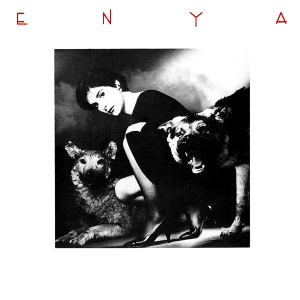The Celts were Iron Age inhabitants of Europe.
Contents
Celt, Celts or Celtae may also refer to:
The Celts were Iron Age inhabitants of Europe.
Celt, Celts or Celtae may also refer to:
Cow is a colloquial term for cattle, and the name of female cattle.

The Celts or Celtic peoples are a collection of Indo-European peoples in Europe and Anatolia, identified by their use of Celtic languages and other cultural similarities. Historical Celtic groups included the Britons, Boii, Celtiberians, Gaels, Gauls, Gallaeci, Galatians, Lepontii and their offshoots. The relation between ethnicity, language and culture in the Celtic world is unclear and debated; for example over the ways in which the Iron Age people of Britain and Ireland should be called Celts. In current scholarship, 'Celt' primarily refers to 'speakers of Celtic languages' rather than to a single ethnic group.

Enya Patricia Brennan, known professionally as Enya, is an Irish singer-songwriter and musician known for modern Celtic music. She is the best-selling Irish solo artist in history and the second-best-selling Irish act after U2.
Celtic, Celtics or Keltic may refer to:
Amber is a fossilized tree resin.
Triad or triade may refer to:
Next may refer to:
A dinosaur is a diverse group of reptiles of the clade Dinosauria.

Enya is the debut studio album by Irish singer, songwriter, and musician Enya, released in March 1987 by BBC Records in the United Kingdom and by Atlantic Records in the United States. It was renamed as The Celts for the 1992 international re-release of the album by WEA Records in Europe and by Reprise Records in the United States. The album is a selection of music she recorded for the soundtrack to the BBC television series The Celts, aired in 1987. Four years into her largely unnoticed solo career, Enya landed her first major project in 1985 when producer Tony McAuley asked her to contribute a song to the soundtrack. After its director David Richardson liked her demo, Enya accepted his offer to compose the entire score with her longtime recording partners, producer and arranger Nicky Ryan and his wife, lyricist Roma Ryan.

Arthur of the Britons is a British television show about the historical King Arthur. Produced by the HTV regional franchise, it consisted of two series, released between 1972 and 1973. ITV had already a reputation for entertaining historical TV shows that would display adventure and swordplay, such as The Adventures of the Scarlet Pimpernel (1956), The Adventures of Robin Hood (1955), The Adventures of Sir Lancelot (1956), Ivanhoe (1958) and Sir Francis Drake (1961). Like Richard Lionheart in the TV shows about Robin Hood and Ivanhoe this King Arthur shows greatness by making peace between the two foremost peoples in the England of his era. The looks of King Arthur and his brother-in-arms Kai resemble contemporary rockstars. Arthur of the Britons was broadcast repeatedly on numerous local ITV stations during the 1970s and 1980s.
A seed is an encased plant embryo.
A fable is a story intended to illustrate a moral.

The Celts: Rich Traditions and Ancient Myths is a 1987 documentary series that examines the origins, growth, and influence of Celtic culture in Great Britain and throughout Europe.
The Continental Celtic languages are the now-extinct group of the Celtic languages that were spoken on the continent of Europe and in central Anatolia, as distinguished from the Insular Celtic languages of the British Isles and Brittany. Continental Celtic is a geographic, rather than linguistic, grouping of the ancient Celtic languages.
Celticism may refer to:
A dynasty is a series of rulers from one family.
Celtic fusion is an umbrella term for any modern music which incorporates influences considered "Celtic", or Celtic music which incorporates modern music. It is a syncretic musical tradition which borrows freely from the perceived "Celtic" musical traditions of all the Celtic nations, as well as from all styles of popular music, it is thus sometimes associated with the Pan-Celtic movement. Celtic fusion may or may not include authentic traditional music from any one tradition under the Celtic umbrella, but its common characteristic is the inspiration by Celtic identity.
Celtic culture may refer to:
The Crossing may refer to:
The various names used since classical times for the people known today as the Celts are of disparate origins.